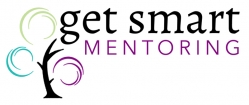 The act of listening is something that many people think of like breathing: innate, automatic. However, to listen well is a skill, and a powerful tool. What a world we would live in if everyone truly knew how to listen. As human beings, we all want and need to be heard and understood.
The act of listening is something that many people think of like breathing: innate, automatic. However, to listen well is a skill, and a powerful tool. What a world we would live in if everyone truly knew how to listen. As human beings, we all want and need to be heard and understood.
Think about how you hold conversations with others. Do you pay the most attention to your own words, think about what you will say next as the other is speaking? Do you ask questions? Do you find yourself talking too much about yourself in every conversation? Listening is a part of communication. Communication is extremely important for the quality of your relationships. And healthy, close relationships are extremely important for the quality of your life.
- Listen “Beneath the Words”: There is a difference between hearing someone and listening to someone. Furthermore, you can listen beneath just the words that are being said. Words can only go so far. To listen fully means to involve not just your ears, but your mind, your heart, and your soul. Listen to the intent and emotion behind the words.
- Focus on What is Being Said: Don’t think about what you’re going to say next, don’t think about how you should react, and certainly don’t think about what you’re going to eat for dinner. Don’t think about anything except the information that is in the present. If you are thinking about something else, it will show. There is no need to think about what you are going to say next, because if you are truly listening, the other person will capture that. No words can take the place of the feeling that you are being listened to. You can help someone without saying a single word.
- Give Affirmative Feedback: You don’t have to be amazing at giving advice to give someone supportive feedback. Any time someone is explaining their thoughts or feelings, one of the most helpful things you could respond with is “It makes sense to me that you feel that way,” “I can understand why you have those thoughts,” or something along those lines. The other person will be so grateful to have your attention, acceptance, and sympathy. People like to feel understood. Chances are, they won’t ask for much more.
- Respond Actively and Constructively: How do you react when someone shares good news? There are four basic ways we can respond to good news, according to psychologist Shelly Gable’s framework. Active Constructive responding reaps the most benefits for both the listener and the deliverer of good news.
To discuss it briefly, here is how the four basic ways of responding might occur when (for example:) someone tells you they just got into their top graduate school choice:
Active, Constructive: “Wow! That’s great! I knew you would! When do you start?” This is the most optimal response. You were both active, by elaborating and inviting further conversation, and constructive, by providing positive feedback content.
Passive, Constructive: “That’s cool!” The response is positive but it does not build upon the statement or encourage any further conversation.Active, DEstructive: “That’s good for you, but now I feel even worse for getting turned down from grad school.” Although the response elaborated on the news, it contains negative, destructive content.
Passive, DEstructive: “Okay. My boyfriend just got a new car”. So, essentially downplaying and blowing off the good news. This is seen as the least effective response.Think about how great it feels when someone reacts excitedly to your good news. It feels awesome when your happiness is validated by others. Create this experience for others. You can respond actively and constructively with non-verbal communication as well, such as making eye contact and smiling. Show your authentic interest and curiosity by asking followup questions. Try to make this your natural way of responding to all good news.
 A good way to think about all of this is to be “others-centered” in your conversations. Conversation is one of those aspects of life where it is optimal to be others-focused. Pay attention to details, verbal and non-verbal. Listen to the intent behind the words being spoken. Think about how your responses and words are landing with the other person; what is the meaning of your words in the other person’s mind? Communication will make or break a relationship, but not to fear, because better communication can be learned. Put your heart and your mind into your conversations, and that intent will, in turn, enrich your relationships and enrich your life.
A good way to think about all of this is to be “others-centered” in your conversations. Conversation is one of those aspects of life where it is optimal to be others-focused. Pay attention to details, verbal and non-verbal. Listen to the intent behind the words being spoken. Think about how your responses and words are landing with the other person; what is the meaning of your words in the other person’s mind? Communication will make or break a relationship, but not to fear, because better communication can be learned. Put your heart and your mind into your conversations, and that intent will, in turn, enrich your relationships and enrich your life.
__________________________________________________________________________________________








Leave A Comment